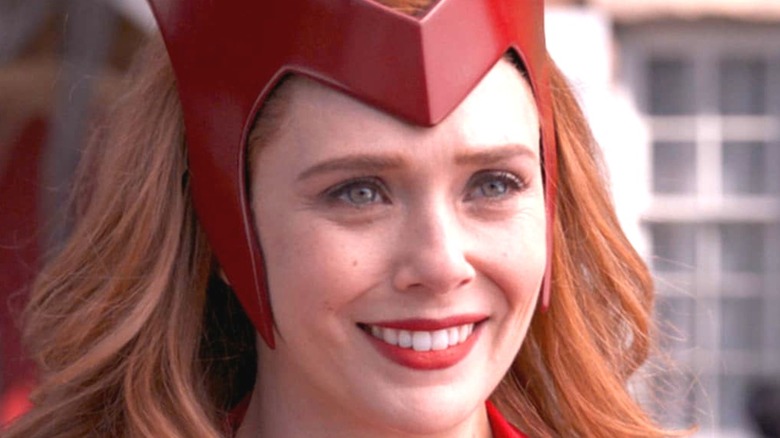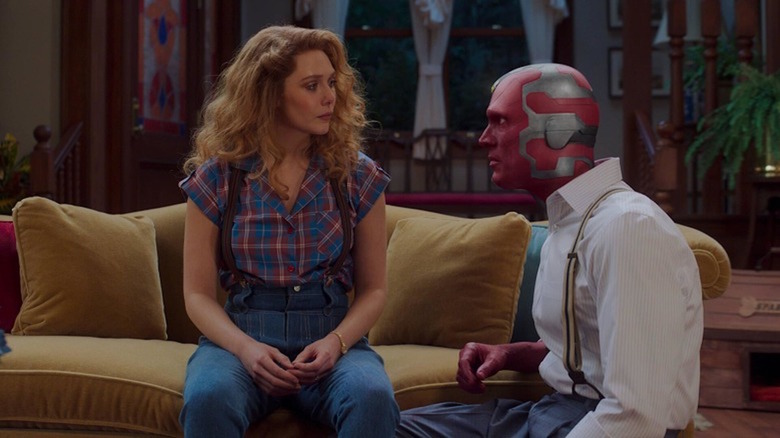The Real Reason Kevin Feige Agreed To Make WandaVision
In 2021, the superhero series "WandaVision" debuted on Disney+ to wide-ranging critical acclaim (via Rotten Tomatoes). A spin-off show following the suburban shenanigans of MCU stars Wanda Maximoff (Elizabeth Olsen) and Vision (Paul Bettany), the project merged sitcom hijinks with a nuanced exploration of hidden grief. As one reviewer noted, "WandaVision" deftly leaned into the poignancy and power of Wanda's inner conflict, "marrying spectacle and emotion for a show that does credit to both its format and its franchise," as described by the San Francisco Chronicle. During its run, viewers often turned to social media to discuss the unfolding narrative, resulting in impressive search traffic that demonstrated the show's enduring popularity (via Decider). By the series finale, fans frequently tweeted their favorite lines, drawing attention to its thoughtful, moving writing (via The Washington Post).
Along with significant support from fans, the series was a hit within the Hollywood industry as well. Among its impressive slate of accolades, the series received 23 Emmy nominations, including outstanding lead actress and actor for Olsen and Bettany, respectively.
At the same time, it wasn't always clear that the show would resonate with viewers. While Marvel Studios excitedly pitched the idea to introduce "WandaVision" as a springboard into the MCU on Disney+, Olsen initially had reservations about the production. In the end, however, she was swayed by the ambition of Kevin Feige's vision and worked tirelessly to embody the multifaceted nature of her character (via Deadline). Upon the show's release, the Marvel Studios head himself later revealed why he, too, became increasingly passionate about the project and pushed for its onscreen creation.
Feige wanted to highlight the untapped potential of the actors and the characters
In an interview with Variety, Feige shared why he found himself drawn to "WandaVision," citing the impressive nature of both the titular characters and the talented actors who portrayed them. As he explained, "The answer for the show is because Wanda and Vision are great characters in the comics that we don't scratch the surface of in the movies, played by actors who are so spectacular, and we've only scratched the surface of what they can do. Putting the spotlight on those actors playing those characters was the primary reason to want to make 'WandaVision.'"
During the same interview, he added that his love for sitcoms as a kid influenced how he approached the storytelling within the series. After spotting the 2016 comic miniseries "The Vision," which featured suburban imagery, Feige knew that he and the team at Marvel Studios, including showrunner Jac Shaeffer and director Matt Shakman, could truly embrace a campy, dynamic structure – one that would ultimately pull away to reveal hidden depths. Noting that a long-form series allowed for innovative narrative opportunities, Feige said, "[I]t felt great to do something that could only be done for television."
After the lauded release of the series, both reviewers and fans wondered if a 2nd season could be in the works, particularly in light of its commercial and critical success. However, Olsen quickly put those rumors to rest, emphasizing, "It's definitely a limited series," as quoted by People. Of course, as any MCU viewer knows, anything can happen when it comes to the multiverse.

